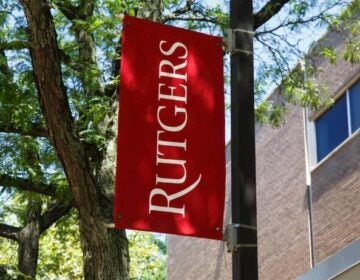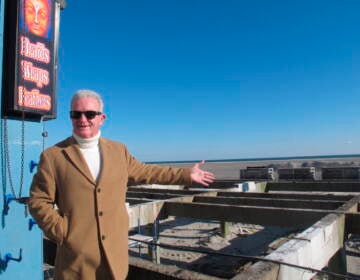Not everyone is happy about NJ’s plan to extend teacher training in schools to one year

The Christie administration’s proposal to extend the student-teaching requirement to a full year is getting some new pushback from leaders of the state’s colleges and universities.
Eight presidents of New Jersey’s public institutions and 13 from private colleges in the state — in separate letters from each group — wrote to the state Board of Education and the state Department of Education opposing the proposed new rules on a host of fronts.
The primary concerns centered on the difficulty and cost of expanding to a full year, essentially doubling the amount of time that most teacher candidates would have to spend in the classroom.
“While we appreciate the Board of Education’s intent to increase and improve the clinical experience currently required in the existing code, we have serious concerns regarding the significant increase in the specific clinical requirements set forth in the proposed regulations,” read the letter, which was signed by all of the state’s public university presidents except Rutgers University’s Robert Barchi.
The proposal is part of a broad package that the Christie administration says will help improve the preparation of new teachers and bolster support of novice teachers once they are on the job. The proposal is close to final approval by the state board; the public testimony ended on Sept. 18.
Existing state code requires a single semester of student teaching. The proposal would add a requirement for an additional 175 hours of clinical practice. If approved, the new code would go into effect in 2018-2019.
The intent is to add more practical experience to teacher training, officials said, which they say they have heard repeatedly from experienced teachers and variety of education researchers.
“This is all steeped in the idea of training through experience,” said Peter Shulman, the state’s assistant education commissioner. “First and foremost, we have to remember why we are doing this. It’s in the best interests of K-12 students.”
Shulman said his department has already addressed some of the concerns, adding more flexibility to the new requirement and pushing it back its proposed implementation for a year.
But the college and university presidents said the proposal would be too burdensome. They call for a compromise measure that would reduce the additional hours.
One of the prime concerns raised by the schools was the additional cost to students, even though the administration claims there would “minimal financial impact.”
Claudine Keenan, the dean of education at Stockton University and president-elect of the state’s association of teaching colleges, testified that one estimate of the additional cost was as high as $43 million a year. Almost half of that would represent lost wages from not being to pursue other work; it also $10 million in additional tuition and $9 million in costs to the local schools hosting student teachers.
The presidents said those extra costs could prevent those of limited means from pursuing teaching careers, adding another hurdle to efforts to diversify the teaching rolls. And they said the added burden on local schools would come at a time when colleges are finding it more difficult to find host schools.
“This is substantial increase in both time and involvement, which the school districts may not be able or willing to accommodate,” the public college presidents wrote. “Moreover, the additional required hours for full-time teaching in the second semester would exacerbate the strain on available classrooms that could be prevented by spreading the additional hours out over time to achieve a better balance for students and the school districts.”
Mark Biedron, the president of the State Board of Education, said in an interview that he was well aware of the concerns and hopes a compromise solution can be found. He said he supports the administration’s efforts to “raise the bar” but thinks some valid concerns have been raised.
“We are trying to come up with something,” Biedron said. “This is the last piece of the puzzle, and we are trying to see how we can it work out it for both sides.”
______________________________________________________
NJ Spotlight, an independent online news service on issues critical to New Jersey, makes its in-depth reporting available to NewsWorks.
WHYY is your source for fact-based, in-depth journalism and information. As a nonprofit organization, we rely on financial support from readers like you. Please give today.




